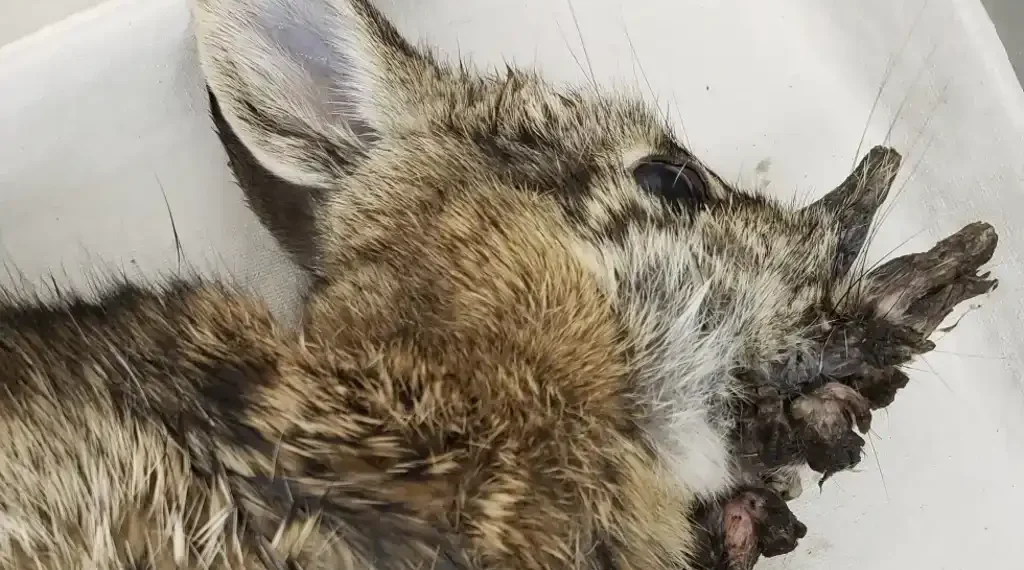Colorado’s “Frankenstein Bunnies”: Understanding Hornlike Growths in Local Rabbits
Published Time: 08-14-2025, 11:00
Residents of Fort Collins, Colorado, have spotted rabbits with unusual hornlike growths, sparking online attention and quirky nicknames like “Frankenstein bunnies” and “zombie rabbits.” Experts confirm these striking protrusions are caused by a common viral infection and pose no serious threat to the animals or humans.
What Causes the “Hornlike” Growths?
The unusual growths on these cottontail rabbits are the result of Shope papillomavirus, a virus first identified nearly a century ago. While the protrusions may look alarming, scientists emphasize that the virus is mostly harmless and part of a natural disease cycle among wild rabbits.
According to Kara Van Hoose, spokesperson for Colorado Parks and Wildlife, the virus spreads through fleas and ticks and primarily affects rabbits during the summer months when these vectors are most active. “It’s not uncommon to see infected rabbits at this time of year,” Van Hoose told The Associated Press. “The virus can spread from rabbit to rabbit but does not affect humans, pets, or other wildlife.”
Historical Significance and Folklore Connections
The Shope papillomavirus has a fascinating history in both science and folklore. Named after Dr. Richard E. Shope, a professor at The Rockefeller University who discovered the disease in the 1930s, the virus has helped scientists understand links between viruses and cancer. In humans, related papillomaviruses can cause conditions such as cervical cancer.
Beyond its scientific importance, the virus may have inspired one of North America’s most enduring myths: the jackalope. This legendary creature, often depicted as a rabbit with antlers, may have originated from sightings of rabbits with viral growths centuries ago.
Why Are Residents Noticing Them Now?
The recent Fort Collins sightings, about 65 miles north of Denver, have gained traction online after local residents shared photos of the rabbits with hornlike protrusions. The unusual appearance of the cottontails has led to playful nicknames like “demon rabbits” and “zombie rabbits,” but wildlife experts stress that the phenomenon is natural and temporary.
“The growths resemble warts but can appear hornlike if they become elongated,” Van Hoose explained. “They do not harm the rabbits unless they interfere with the eyes or mouth. Most of the time, the rabbit’s immune system fights off the virus, and the growths disappear on their own.”
What This Means for Wildlife and Humans
Wildlife officials urge residents not to worry about the rabbits. The virus is species-specific and poses no risk to humans, pets, or livestock. Observing these rabbits in the wild can offer a unique glimpse into local wildlife ecology without causing harm to the animals.
Experts also note that these cases provide opportunities for public education on wildlife diseases and their historical significance. “It’s a reminder that what may seem unusual or scary often has a natural explanation,” Van Hoose said.
How to Safely Observe Infected Rabbits
While encountering these unusual rabbits can be exciting, experts recommend observing from a distance. Avoid handling wild rabbits, as this can stress the animals or inadvertently spread fleas and ticks. Photography and wildlife watching are safe ways to appreciate the unique appearance of these Fort Collins cottontails.
Additionally, learning about the Shope papillomavirus can foster appreciation for both wildlife biology and the connections between historic folklore and real-world biology.
Conclusion
Fort Collins’ “Frankenstein bunnies” are a striking example of how viral infections in wildlife can capture public imagination. While the hornlike growths are dramatic in appearance, they are a natural, mostly harmless occurrence that has fascinated scientists and folklore enthusiasts for nearly a century. By understanding the science behind these viral growths, residents and wildlife enthusiasts can enjoy observing the bunnies without fear, contributing to awareness of local wildlife health and conservation.
This article was rewritten by JournosNews.com based on verified reporting from trusted sources. The content has been independently reviewed, fact-checked, and edited for accuracy, neutrality, tone, and global readability in accordance with Google News and AdSense standards.
All opinions, quotes, or statements from contributors, experts, or sourced organizations do not necessarily reflect the views of JournosNews.com. JournosNews.com maintains full editorial independence from any external funders, sponsors, or organizations.
Stay informed with JournosNews.com — your trusted source for verified global reporting and in-depth analysis. Follow us on Google News, BlueSky, and X for real-time updates.














